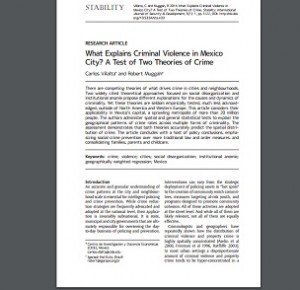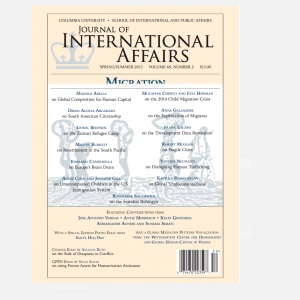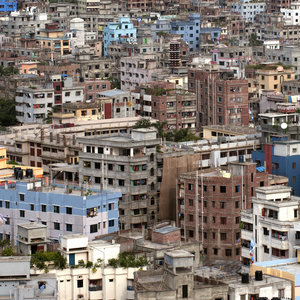
Here’s how rising global risks will change our cities
While the coronavirus pandemic is ravaging around the globe, we will continue to experience unprecedented urbanization in the coming decades.

While the coronavirus pandemic is ravaging around the globe, we will continue to experience unprecedented urbanization in the coming decades.

Having ravaged some of the world’s wealthiest cities, the coronavirus pandemic is now spreading into the megacities of developing countries.

We are facing a climate emergency. More than 11,000 of the world’s scientists and successive reports issued by the International Governmental Panel on Climate Change say the evidence of human-induced global warming is irrefutable.

Cities are stepping-up to confront many of the world’s biggest existential challenges – especially climate change. One reason is that cities have always been where the future happens first; spaces that cultivate creativity, resourcefulness and innovation.

All coastal cities are facing sea-level rise, but some will be hit harder than others. Asian cities are in for a particularly rough ride.

The 2019 Pritzker Forum on Global Cities takes place in Chicago June 5 through 7.

Cities are the defining form of human organization in the 21st century

One of humanity’s gravest existential threats is invisible. Pandemics are silent killers and have prematurely ended the lives of more people than virtually any other cause.

The planet is urbanizing at an unprecedented speed, generating enormous social, economic and climatic stress. If sustainable urbanization is one of the paramount challenges of the 21st century, then Asia is ground zero for determining whether humanity can succeed.

Cities are the anchors of human civilization. By 2050, roughly three quarters of humanity will live in one

Folha de S. Paulo – No país que possui 32 das 50 cidades mais violentas do mundo, é inadmissível que a segurança pública

What Explains Criminal Violence in Mexico City? A Test of Two Theories of Crime There are competing theories of what drives crime in cities and neighbourhoods. Two widely cited theoretical approaches focused on social disorganization and institutional anomie propose different explanations for the

Devex – It is hard to know with certainty where and why cities will falter and fail in the 21st century

After more than a century of steady city expansion in northern countries, the direction of twenty-first century population growth is shifting southwards. Over the next five decades, Africans, Arabs, and Asians will migrate in unprecedented numbers to cities, especially to their slums. Many of these

Deconstructing the fragile city: exploring insecurity, violence and resilience An emerging social category – the fragile city – can be described as a discrete metropolitan unit whose governance arrangements exhibit a declining ability and/or willingness to deliver on the social contract. Fragility is thus no

Humanitarian agencies are questioning when and how to engage with violent urban settings. This article presents possible ways to solve this question.

15/04/2014 Violent disorder in Ciudad Juarez: a spatial analysis of homicide This article considers the extent to which specific demographic and socioeconomic factors correlate with homicidal violence in the context of Mexico’s “war” on organized crime. We draw on Ciudad Juarez as a case study

The world has entered its urban age. More than half of the globe’s population currently resides in cities as compared to

A new social category recently emerged on the security and development landscape: the “fragile city”. This article debates the term and challenges to improve their autonomy.

Article that debates the violence and fragility of cities of developing countries.

The Igarapé Institute uses cookies and other similar technologies to improve your experience, in accordance with our Privacy Policy and our Terms of Use, and by continuing to browse, you agree to these conditions.

O Instituto Igarapé utiliza cookies e outras tecnologias semelhantes para melhorar a sua experiência, de acordo com a nossa Política de Privacidade e nossos Termos de Uso e, ao continuar navegando, você concorda com essas condições.

